
When it comes to Indian customs and laws, the rumour mills really get cranking. Would your hand be chopped off for stealing? No. Would you be arrested for a quick hug in the street? Unfortunately, yes.
Here’s a list of ground rules compiled for your benefit so you know exactly what’s coming. More importantly, familiarize yourself with the legal terms. Then you know when you’re really guilty and when you’re being harassed by corrupt authorities. As a foreigner, you’re likely to be the target of policemen or locals trying to take advantage of your ignorance, so it’s important to know your rights.
Wondering when is the best time to visit India, read here?
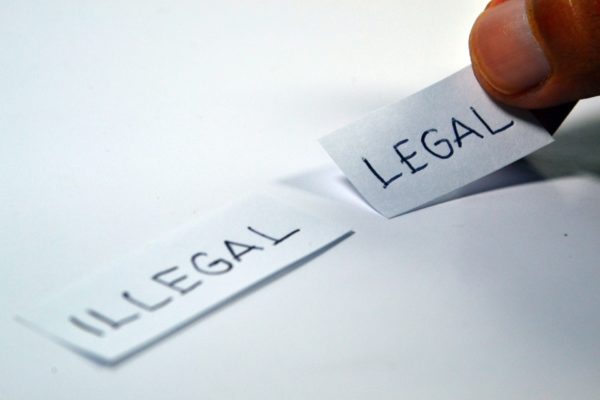
Legal rights of Women
- Only female officers can escort women to the police station. If there isn’t one, DON’T GO!
- Not only do male officers have no right to escort a woman but she can also refuse to go to the police station between 18:00 hrs to 06:00 hrs. In case of a serious crime, a written permit from the magistrate is required for male officers to escort her.
- Women can lodge complaints through emails at ncw@nic.in, our National Commission for Women.
- Guidelines issued by the Delhi Police entitle women to the privilege of registering a complaint via email or even through post if she can’t go to the police station. Just do a quick internet search to get the contact details of your local police station.
Look at the different South India and North India travel routes.
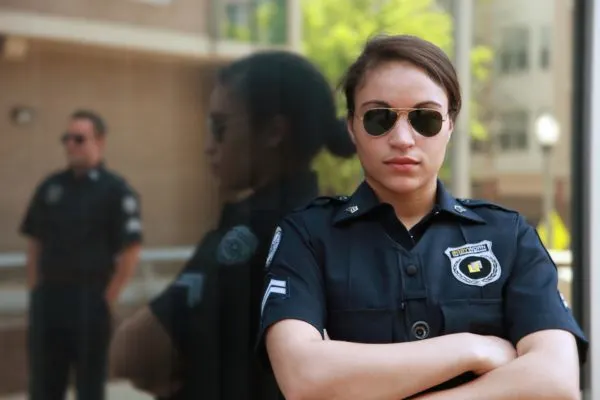 Only female officers can escort women to the police station (Photo Credit – BodyWorn by Utility)
Only female officers can escort women to the police station (Photo Credit – BodyWorn by Utility)
Public Protocol
PDA
A lot of the issues in Indian law stem from the fact that the vague wording of the Indian Penal Code gives the cops an unfair amount of wiggle room. While in the cities you might find rows of couples making out beneath skimpy scarves by the shoreline, more rural areas can tend to object to even holding hands or a peck on the cheek. On visiting new places always try to gauge the atmosphere first. If reprimanded by a police officer, be apologetic to the point of grovelling. Rudeness and high-handedness will get you nowhere. Nudity or going topless in public is never an option at any beach. Bikinis are best avoided on most beaches in South India, which is home to religious sites.
Public Nuisance
Section 268 defines this as ‘an illegal omission which causes any common injury, danger or annoyance to the public or to the people in general.’ Note the use of the term ‘annoyance’, again widely open for interpretation. Avoid disturbing residents with loud noises, public drunkenness or anything that could be construed as vandalism. Sexual harassment is punishable by law.
Recording
You obviously want a trove of videos and photographs to take home, and India provides a multitude of photo ops, but try and be a little careful in sensitive areas. Military and government zones, crowded airports and railway stations are always on high alert for security threats, you don’t want to be mistaken for one. Put away binoculars, if you’re carrying any.
Get insights on traveling to India from the US
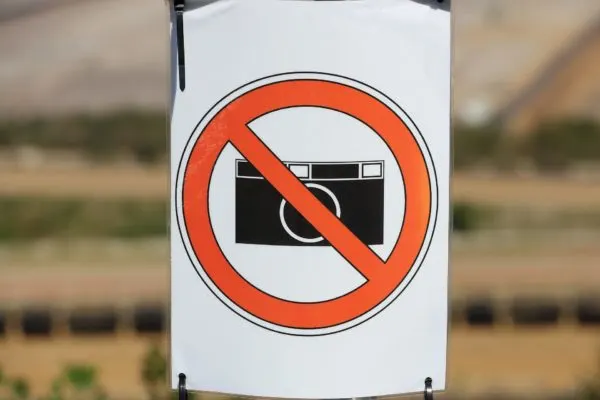 Check for any sign that explicitly prohibits photography (Photo Credit: Herbert Aust)
Check for any sign that explicitly prohibits photography (Photo Credit: Herbert Aust)
Substance laws
Alcohol
The legal age for drinking as per the Indian Law is between 18 to 25 (this varies from state to state), so do some local research before you go. A distinction is usually made between mild liquor (beer and wine) and hard liquor (spirits). Avoid any local liquors not vetted by your hotel manager or tour guide, and again, no public drunkenness. If an election is nearing, alcohol may be banned for a couple of days prior, and days of local religious or political significance are also usually dry. Some states are dry year-round, or require a permit to buy, transport or consume alcohol. Carriage of alcohol between states is often illegal due to the varying alcohol laws, you may be stopped for a random check.
Drugs
Unequivocally illegal. Cigarettes and chewing tobacco are available on every street corner and don’t carry much social stigma. However, for anything else there will be legal consequences. Consequences such as a 6-month minimum sentence for possessing a small amount of drugs deemed for personal consumption, and a 10-year sentence for drug possession of anything sufficient for trafficking. Convicted offenders can expect fines and a minimum jail sentence of 10 years.
Beef
In 2015, several states declared a blanket ban on export, import, and sale of beef and beef products, a continuation of the prevention of cow slaughter laws. Deliberate killing or maiming of a cow can attract a five-year prison sentence, so be careful when you drive!
Contraband
Transport and possession of firearms, antiques, electronic equipment, local currency, ivory, gold objects, and pornographic materials are all regulated by the government. Non-residents cannot import or export the Indian rupee, while Indian citizens have limits. For more information, consult India’s Central Board of Excise and Customs. Antiques, specifically, must be registered with local police, along with a photograph of each item. Satellite phones are illegal.
 Alcohol laws of India are different for different states (Photo Credit – Free Photos)
Alcohol laws of India are different for different states (Photo Credit – Free Photos)
Identification
Carry your passport with you at all times; you will require it for all check-ins at hotels or airports. If you’re brave enough to drive in Indian traffic, make sure you have an international driving permit and a helmet for motorcyclists and passengers.
The Indian legal process is cumbersome and lengthy. Do your best to avoid any brush with the Indian law. Individuals arrested on a major offence can languish in jail for years before a verdict is reached. Indian ‘red-tape ‘ism can hamper your consulate’s attempts to help. Try not to forget that India still awards the death penalty for the ‘rarest of rare ’ cases. This is another excellent example of our tendency for vague wording. Always keep in mind your rights and defend your innocence, but courteously.
Read Further: Finding Joy in Things to do in India
Additional Resource: India’s Finest Luxury Hotels
Now that you know the legal dos and don’ts, what are you waiting for? Contact us, and we will be more than happy to plan that dream trip of yours.
Explore Further: Top 20 Destinations in Northern India
Frequently Asked Questions
Foreign tourists should be aware of laws regarding visa regulations, respecting local customs, and avoiding illegal activities such as drug use. It’s also important to understand traffic rules and be mindful of public behavior.
While photography is generally allowed in public places, there may be restrictions at certain historical sites, government buildings, and religious places. Always check for signs or ask for permission before taking photos.
Alcohol laws vary by state. Some states may have restrictions on the sale and consumption of alcohol, and there may be dry days. It’s important to be aware of local regulations.
helping you travel your way
Everything you need to know about India is here We have tried writing about everything you may need help with for your trip to India, If you need help in planning a trip to India Get in touch with us to to plan your trip of a life time.



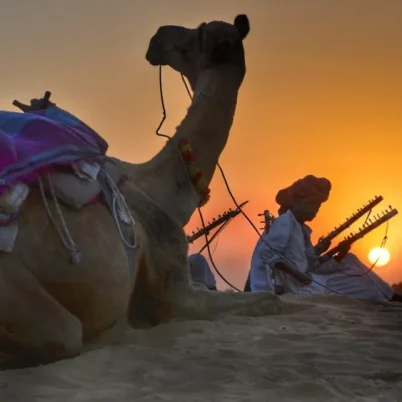
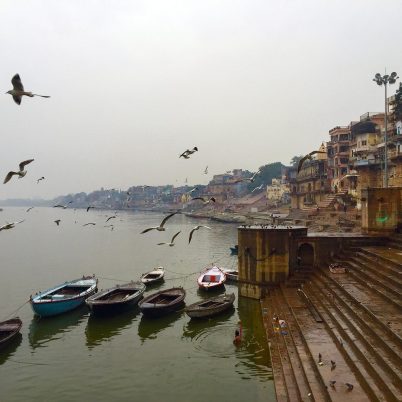
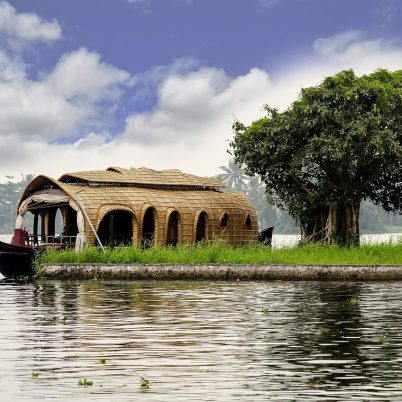

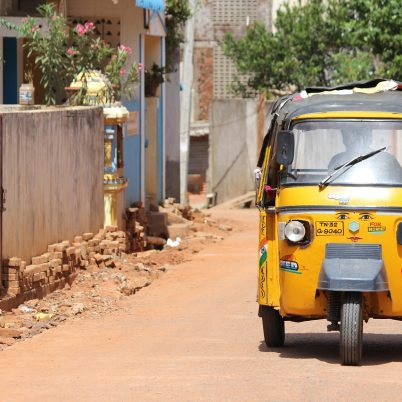
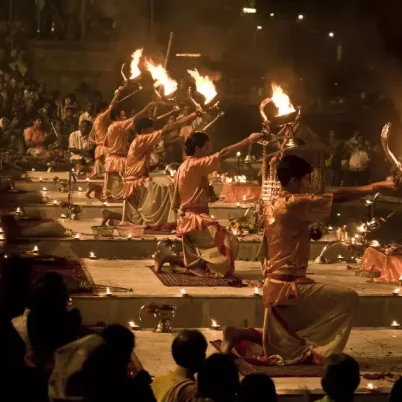



another big problem for those that have houses and “families” back in India is how locals or distant “relatives” (for any insignificant reason) file false police complaints against foreign nationals with the sole purpose of delaying or preventing them from going back home.
this problem is more prevalent than you think, and its horrible because there is nothing on the internet about this, and consequently little can help the said foreign national, especially with India’s corrupt, long, and therefore painful litigation process.
Hello
As an Indian, I would love to inform foreigners that the streets of Delhi are the worst places in the country for woman. I personally feel Goa, Jaipur Jaisalmer and cities, Kerala, and North eastern India are much safer. Also whenever you are traveling in India, please avoid staying in hotels, as they are unsafe and a rip off for foreigners. I recommend hostel chains like Zoster, Moustache etc. Zostel is the best ever hostel chain, with all modern facilities like AC, WiFi, social gathering place, even swimming pools in some. It’s very cheap (about 6-8 $ a night). And very safe and super friendly people. I have stayed in a lot of them.
If you have any queries regarding visiting India, iI would love to help. Pm me.
Cheers!
Shrihari Kulkarni
shriharikulkarni18@gmail.com